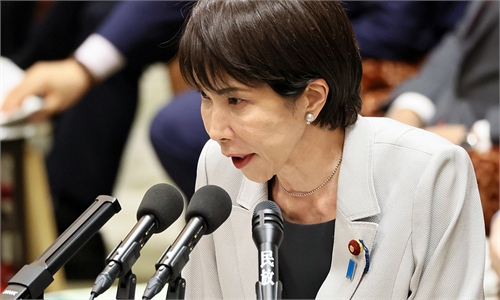China’s main state newspaper has sharply criticized Japan after recent comments made in Tokyo’s parliament about Taiwan. According to the paper, Japan is “trying to revive wartime militarism,” a claim that has quickly intensified Japan Taiwan tensions between the two Asian neighbors.
Japan Taiwan Tensions Spark Strong Reaction
The issue began when Japan’s leader stated that if China attacked Taiwan, Japan could consider it a “survival-threatening situation.” Under Japan’s laws, this situation could allow Japan to take military action. China immediately objected, accusing Japan of interfering in its internal affairs.
Soon after, a Chinese diplomat posted angry comments online, saying that anyone who “sticks their neck in must be cut off.” This statement alarmed Japan, which quickly protested to China’s foreign ministry. The exchange led to more heated words from Chinese state media, which started publishing strong editorials accusing Japan of repeating old mistakes. These events have fueled ongoing Japan Taiwan tensions, making the situation increasingly sensitive.
Japan sends bold warning to China — Self-Defense Forces hold rare naval drills near Taiwan
China argues that Japan is moving toward becoming a stronger military power again, something that brings back painful memories of World War Two for many Chinese people. The newspaper claimed that Japan’s recent actions show a pattern of “military buildup” and accused Japanese leaders of trying to excuse or downplay their country’s wartime history.
Historical Wounds Fuel Japan Taiwan Tensions
China views Japan’s wartime invasion in the early 1900s as one of the darkest periods in its modern history. Because of this, any signs of Japan increasing its military capabilities or commenting on China’s territories — including Taiwan — are highly sensitive. The ongoing Japan Taiwan tensions are a direct result of this historical sensitivity.
According to Chinese state media, Japan’s recent political moves are not random. The paper argued that Japanese leaders have been trying to loosen the restrictions of their post-war constitution, which limits military power. Actions like visiting controversial war memorials and denying past wartime events were cited as signs of Japan “reviving militarism.”
China blacklists U.S. naval shipbuilder Huntington Ingalls in fury over Taiwan weapons sales
The newspaper also compared Japan’s Taiwan remarks to the 1931 Manchuria invasion, when Japan used a “survival crisis” to justify aggression, questioning whether history is repeating itself.
Taiwan plays a critical role in these tensions. The island is just over 110 km from Japan, and nearby sea routes are vital for trade, making Japan sensitive to any conflict. While China claims Taiwan as its own, Japan says it seeks peace and supports dialogue. Recent warnings to Chinese embassy staff in Tokyo about rising anti-China sentiment highlight how Japan Taiwan tensions are affecting both diplomacy and public perception.
China increases pressure on Taiwan figures
China has also increased pressure on people it considers supporters of Taiwan’s independence. It recently criticized a well-known Taiwanese official who traveled to Europe, saying he was spreading false stories. The official said China had threatened to arrest him while he was abroad, but he insisted he was not scared.
A spokesperson from China’s Taiwan Affairs Office said that supporters of independence were “at a dead end.” The spokesperson called their actions a “self-directed farce” and claimed that they were only revealing their own fear of possible punishment from China. This rhetoric reflects broader Japan Taiwan tensions, linking Japan’s military statements to China’s warnings over Taiwan.
Just one day earlier, Chinese police issued a wanted notice for two Taiwanese social media figures. They offered a cash reward for information leading to their capture, accusing them of promoting separatism. Taiwan’s government criticized the move, saying China was simply trying to intimidate its citizens.
This series of actions — Japan’s comments, China’s strong reactions, and Beijing’s pressure on Taiwanese voices — shows how delicate the situation around Taiwan has become. Even a single statement from a foreign leader can trigger diplomatic protests, angry editorials, and warnings of rising public tensions, further highlighting Japan Taiwan tensions.
The latest developments underline how historical wounds, national pride, and territorial disputes continue to shape the relationship between Japan, China, and Taiwan. The cycle of warnings, statements, and media coverage keeps Japan Taiwan tensions in the spotlight.

